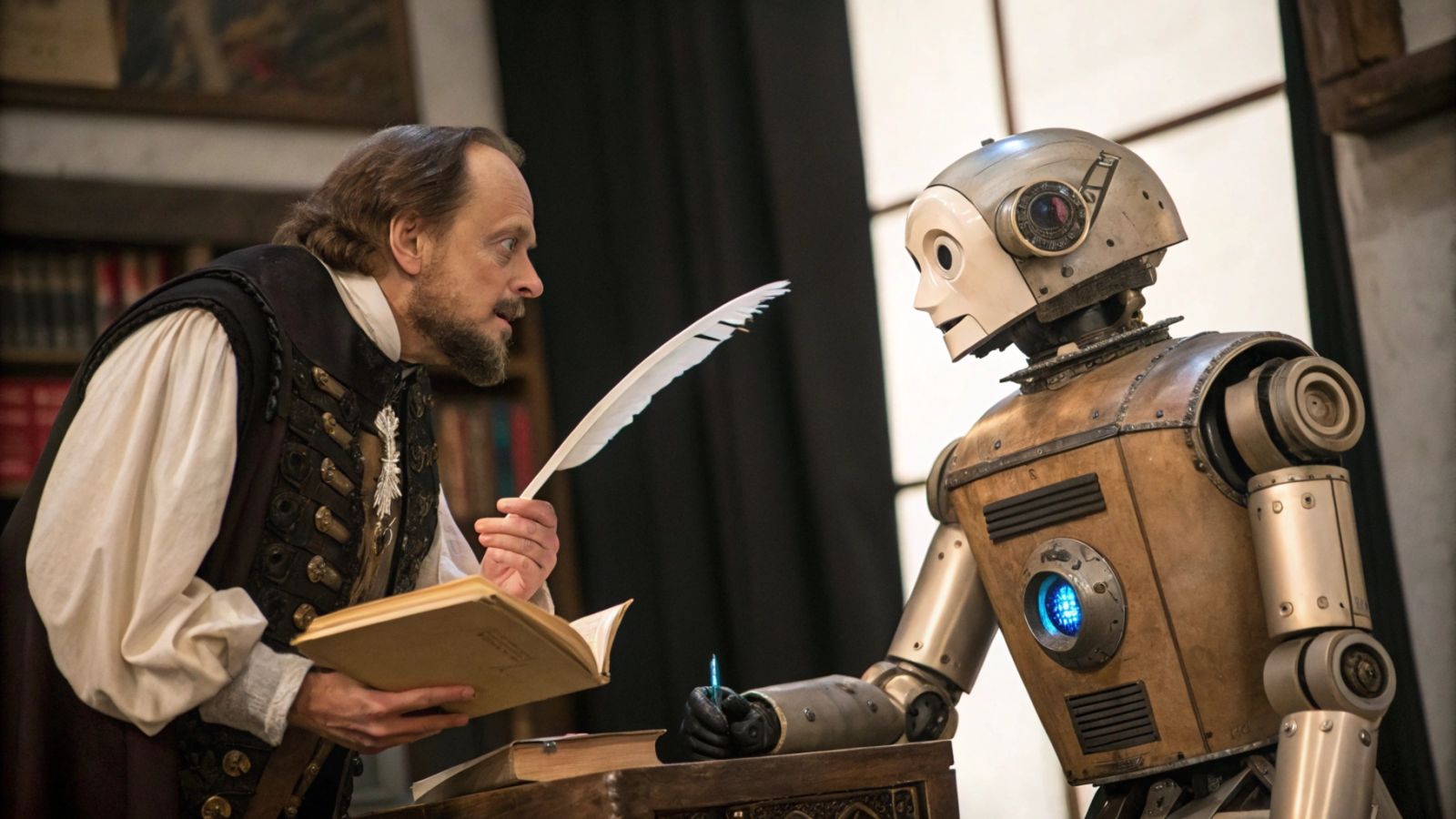An obsolete version of ChatGPT deemed more human than Shakespeare 📜
Follow us on Google News (click on ☆)

Conducted by Brian Porter and Edouard Machery of the University of Pittsburgh, this study examined 1,634 participants. They were tasked with differentiating poems written by literary giants such as William Shakespeare or Emily Dickinson and others produced by ChatGPT 3.5, a now-obsolete version of OpenAI's generative artificial intelligence.
The results were surprising: participants more often attributed AI-produced poems to humans. And among the texts least recognized as "human," all came from real poets.
A second experiment, involving 696 participants, sought to evaluate 14 characteristics of the poems, such as their quality, beauty, or originality. The goal was to understand how the perceived origin of the texts influenced these judgments. Some participants were led to believe that the poems were written by humans, others by AI, while the last group received no indication.
The results show a clear influence of expectations. Those who believed the texts were AI-generated assessed the poems more harshly, whether they were actually machine-produced or not. Conversely, participants with no prior indication tended to appreciate the AI texts more.
Why such confusion? The researchers suggest several hypotheses. Human poetry, often dense and complex, can appear incoherent—a trait typically associated with AI. On the other hand, AI-generated poems are generally clearer and more accessible. This simplicity may appeal to readers, who interpret it as a sign of human skill.
Biases also play a key role. There is an instinctive expectation that humans will surpass machines in such artistic domains. As a result, when a poem is simple and easy to understand, it is naturally assumed to be human work.
This study raises questions about aesthetic criteria and the limits of human creativity in the face of algorithms. By pushing the boundaries of art, AI is also redefining how we appreciate it.